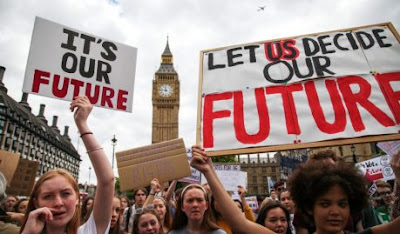Trumpism is a Refusal to Acknowledge America's Original Sin

President Donald Trump’s refusal at the first presidential debate to condemn white supremacists for inciting violence and his statement that the violent hate group, Proud Boys, should “stand back and stand by” rather than “stand down” at demonstrations across the country was shocking but did not surprise me. Unfortunately, the President’s views are those of far too many of his supporters. The problem with many Trump voters are their stubborn refusal to accept or even fully acknowledge that the country continues to be haunted by the consequences of its original sin, the acceptance of chattel slavery by the nation’s Founding Fathers, and the refusal by many white Americans to accept the presence and humanity of black people. Using a cultural motif known as a “pact with the devil,” during that usually hot summer in Philadelphia in 1787, the Framers offered the soul of the nation to Satan in exchange for a national unity constructed around a white Christian identity. The eco...

